After saving 14,000 refugees during the Korean War, this captain turned monk is being considered for sainthood.
Captain Leonard LaRue never wanted to be called a hero, though he saved 14,000 lives by one incredible act during the Korean War. It is very unlikely, then, that the idea of being called a saint ever crossed his mind. Yet the same action deemed heroic by two different countries has also been deemed saintly by a core group of Catholics, and these devotees are working to have that title bestowed on this man by the universal Church.
The War Story
It was the bitterly cold winter of 1950. LaRue, captain of the Meredith Victory, an unarmed cargo ship, was summoned to the harbor of Hungnam, North Korea, to support a desperate evacuation. UN forces, pursuing a battered North Korean Army, had been surprised by the sudden entrance of Chinese troops into the Korean War and were surrounded at the infamous onslaught now known as the Battle of Chosin Reservoir.
About 105,000 US Marines and soldiers and 90,000 Korean refugees were pinned to the sea as the Chinese forces drew nearer. Evacuating the troops was a priority, but American colonels believed that if the refugees were left behind, Communist troops would view them as American sympathizers and slaughter them.
“I trained my binoculars and saw a pitiable scene,” LaRue would later recall. “Refugees thronged the docks. With them was everything they could wheel, carry, or drag. Beside them, like frightened chicks, were their children.”
“When the Army representatives asked Captain LaRue if he would volunteer—they could not order him—to go in to the beachhead, take off as many refugees as [he] could,” says 90-year-old retired Rear Admiral Robert Lunney, who was the staff officer of the crew of 35 men, “Captain LaRue, without hesitation, said, ‘I will take my ship in, and we’ll take as many as we can.'”
With a cargo of 300 tons of highly flammable jet fuel, the Meredith Victory navigated through the 30-mile minefield surrounding Hungnam. The freighter was the last of about 200 American ships to finish loading. As the crew urged the desperate refugees into the cargo holds using one of the few Korean words they knew, bali (faster), Chinese forces advanced to about 4,000 yards from the beachhead, naval and air bombardments fired overhead, and demolition teams laced the harbor with explosives.
By the morning of December 23 after only 13 hours, the Meredith Victory had packed 14,000 refugees on board and, still carrying jet fuel, steered into waters infested with enemy submarines. The ship had no escort or any way to defend itself against potential attacks.
The cargo holds, as well as the entire deck, were swarming with masses of humanity. There were no food rations, no bathroom facilities, and not enough warm clothing sufficient for so many people. Yet despite three days at sea in freezing temperatures, not one person perished. In fact, by the time the ship safely delivered the refugees to the small island of Geoje on the southern coast of South Korea on Christmas Day, five babies had been born on board.
Many years later, Lunney still vividly recalls the scene and wonders at his captain’s decision to attempt such a dangerous rescue.
“I asked him how [he was] able to make that decision when they described all of the danger in taking a ship in, how close the enemy was to the beachhead, and [he] stood to lose [his] ship or [his] men?” Lunney relates. “He just reached over and he touched the holy Bible and said, ‘The answer is here—no greater love hath a man than to lay down his life for his friends.'”
LaRue would later recall: “I think often of that voyage. I think of how such a small vessel was able to hold so many persons and surmount endless perils without harm to a soul. The clear, unmistakable message comes to me that on that Christmastide, in the bleak and bitter waters off the shores of Korea, God’s own hand was at the helm of my ship.”
From Captain to Monk
The hand of God would continue to guide LaRue, just as Christmastime would continue to bring about miracles for the old captain. In 1954, LaRue left the sea to join the Benedictine congregation of St. Ottilien at St. Paul’s Abbey in Newton, New Jersey. He made his first profession on Christmas Day, 1956, and took his final vows at the Christmas midnight Mass three years later. The name he chose, Marinus, was both a tribute to the Blessed Virgin Mary and an appropriate appellation for a man of the sea.
“He always had a soft spot for the downtrodden,” recalls his last abbot, Father Joel Macul, OSB. “If a poor person would come to the door, he always would want to help. Sometimes [he] would go to the kitchen after hours and maybe put a food bag or something together.”
Brother Marinus spent his days serving others at the monastery. Rarely did he speak of his heroic rescue of 14,000 people and preferred that others not ask about it.
“He once said to me, ‘You know, people come down and they forever want to talk to me about this rescue,'” says Lunney, who visited his former captain at St. Paul’s Abbey several times. “He said, ‘All I did [was] what was right.'”
Reaching Out to Korea
As Brother Marinus approached the age of 87 with failing health, the hand of God would intervene again through the lives of those he saved. St. Paul’s Abbey, with a dwindling community no longer able to support itself, was on the verge of closing its doors. Leadership of the congregation asked a community in Waegwan, South Korea, if they would send young members to Newton to save the monastery.
The monks in Waegwan were aware that Brother Marinus lived at St. Paul’s and, even more, knew what he had done for the Korean people. One of their members had been rescued as a young boy aboard the Meredith Victory.
“There was this human connection because of the story of Brother Marinus; it affected the lives of many people they knew,” says Father Macul. “That is one of the motivating factors for them to say, ‘Yes, this man did something for us; now we can be missionaries on the other side.'”
On October 12, 2001, the monks of Waegwan informed St. Paul’s Abbey that they would accept this new mission. Two days after his monastery was assured to be safe, Brother Marinus passed away. In yet another yuletide miracle, the first group of Korean monks arrived in New Jersey 10 days before Christmas.
Continuing Influence
The ripples caused by LaRue’s heroic rescue at Hungnam continue to spread. In June 2017, the new leader of South Korea, President Moon Jae-in, publicly acknowledged that he owes his life to this incredible captain. Moon’s parents were among the thousands saved aboard the Meredith Victory. In fact, the president was born just two years later on the same island where the freighter had disembarked.
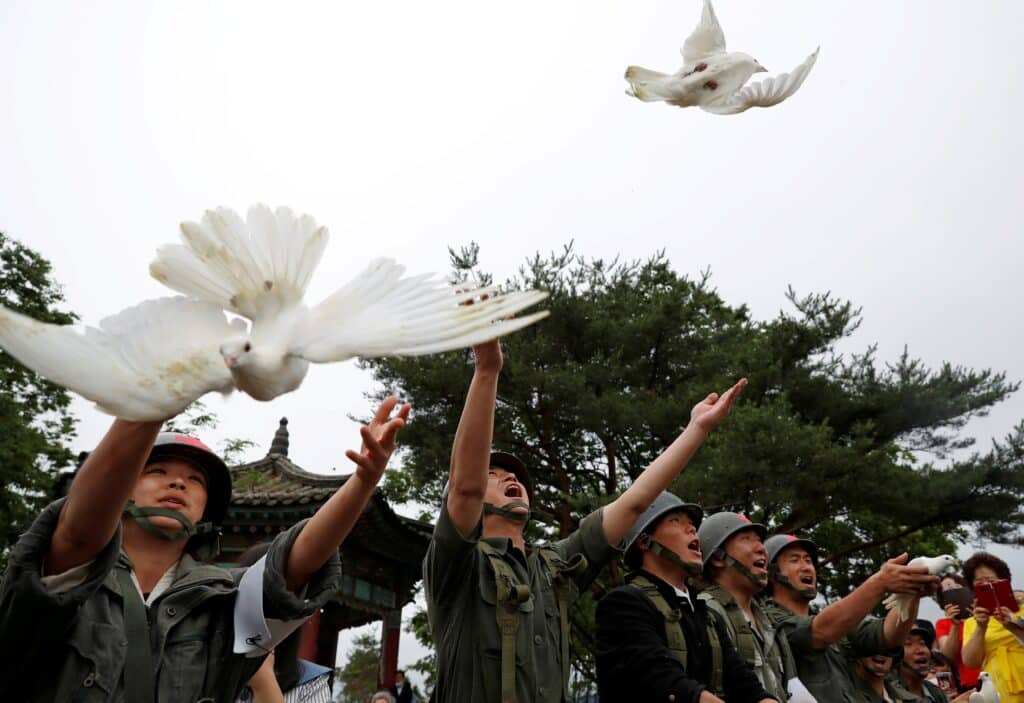
“Had it not been for the valiant warriors of the Jangjin [Chosin] Reservoir Battle and the success of the Hungnam evacuation, my life would not have started. I would not even exist today,” said Moon, speaking at a new monument to the battle at the National Museum of the Marine Corps in Quantico, Virginia. He had made this memorial his first stop on his first trip as head of state. “So, how can I fully express my gratitude for your sacrifice and devotion with any words in any language in this world? Words like respect and gratitude just seem to be far from enough,” Moon said.
A Seed Is Planted
Rear Admiral Lunney was among the small, handpicked group in attendance as Moon paid his respects and acknowledged Captain LaRue. In addition to Moon, Lunney recalls meeting yet another person rescued aboard the Meredith Victory several decades prior. Sister Bernadetta-Maria, who is now a member of the Missionaries of the Sacred Heart in Busan (formerly Pusan), was the first to suggest to Lunney an incredible notion.
“She told me that she prayed every day that Captain LaRue be named a saint,” says Lunney. “The thought process never really occurred to me. No matter who you know, you never think of them as being a saint.”
The hand of God seemed to have also planted that same idea in the depths of another heart a thousand miles from Lunney’s New York state home. Father Sinclair Oubre, a pastor in the Diocese of Beaumont, Texas, and certified Merchant Marine, came across the story of Brother Marinus and immediately felt he had found a spiritual mentor.
“[Due to] his unhesitating response to take care of the refugees who were not his relatives, who were not of the same ethnic group, [he clearly placed] himself and his ship and his crew in a dangerous situation and yet [recognized] that dignity that lay within them,” explains Father Oubre. “The fact that he lived a humble life of prayer, all those things sort of came to me and spoke to me that there [are] examples here from which the Church can draw upon.”
As the diocesan director of the Apostleship of the Sea, the official Catholic ministry to mariners, Father Oubre recognized the impact that a merchant sailor-saint could have on the lives of those he serves. He approached the apostleship in late October of 2017 to see if they would spearhead a sainthood cause for this exceptional captain. The apostleship agreed. “Merchant mariners are often marginalized and are often looked upon as drunks and fighters and brawlers. It [Brother Marinus’ sainthood cause] can certainly give us a tremendous amount of dignity in our own lives,” says Father Oubre.
The Journey to Sainthood
The process of recommending a person for canonization, full of research and investigations, is long and easily stalled, but Father Oubre says that, thus far, it has been “smooth sailing” for Brother Marinus. Vatican guidelines instruct that a sainthood cause must be officially initiated by the bishop of the diocese in which the person passed away. In this case, that responsibility falls to Bishop Arthur J. Serratelli of the Diocese of Paterson, New Jersey. In a meeting with Father Oubre and Lunney on October 13, 2017, the bishop gave his blessing.
“He told us he wants to do anything he can to help move this thing forward,” says Father Oubre.
Going beyond verbal support, Bishop Serratelli secured a Rome-based postulator, whose job is to act as a guide through the process. The next step is to send an outline of Brother Marinus’ life to the Vatican’s Congregation for the Causes of Saints and officially request to begin a sainthood cause. If the congregation does not object to this request, it issues a nihil obstat, which translates to “no objections.” This means that the cause is open and Brother Marinus may be referred to as Servant of God.
“Then the tough grinding gets started,” laughs Father Oubre.
Extensive research into the life and writings of Brother Marinus must be done to progress the title from Servant of God to Venerable. The next two steps along the road to canonization—Blessed and Saint—both require that miracles occur as a result of Brother Marinus’ intercession. For this reason, Father Oubre and Lunney are eager to share the story of this devout seafarer and encourage the faithful to seek his intercession in daily life.
“This is truly an example of Christian faith in action,” Lunney asserts. “When it came to making a decision to do something as dramatic and within the realm of heroic virtue, he did it without hesitation. And that must be told.”


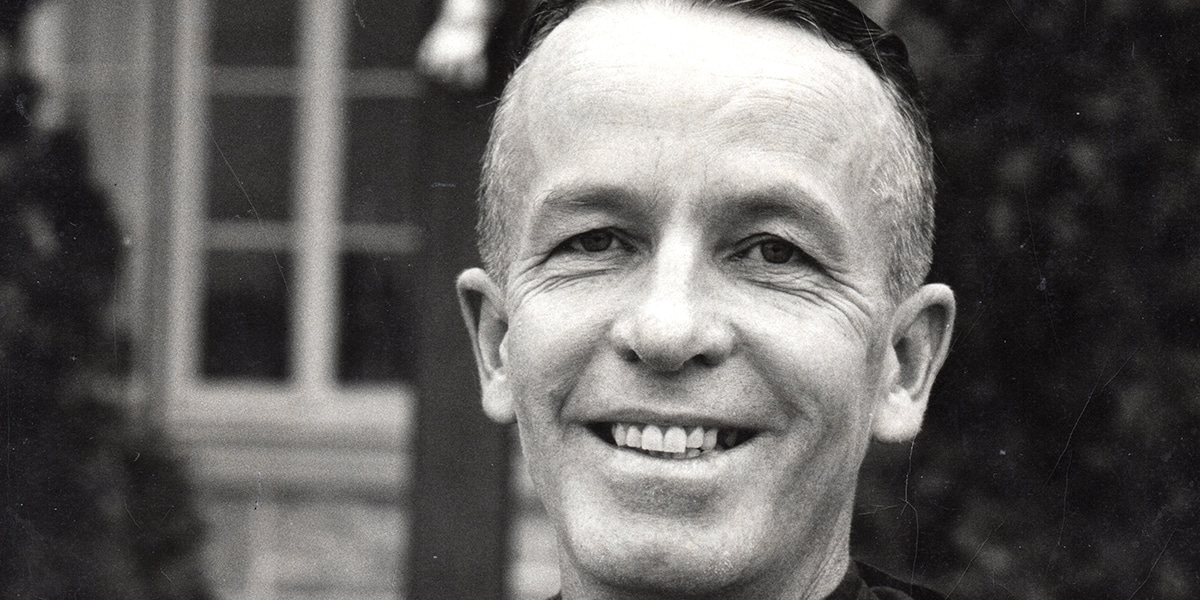

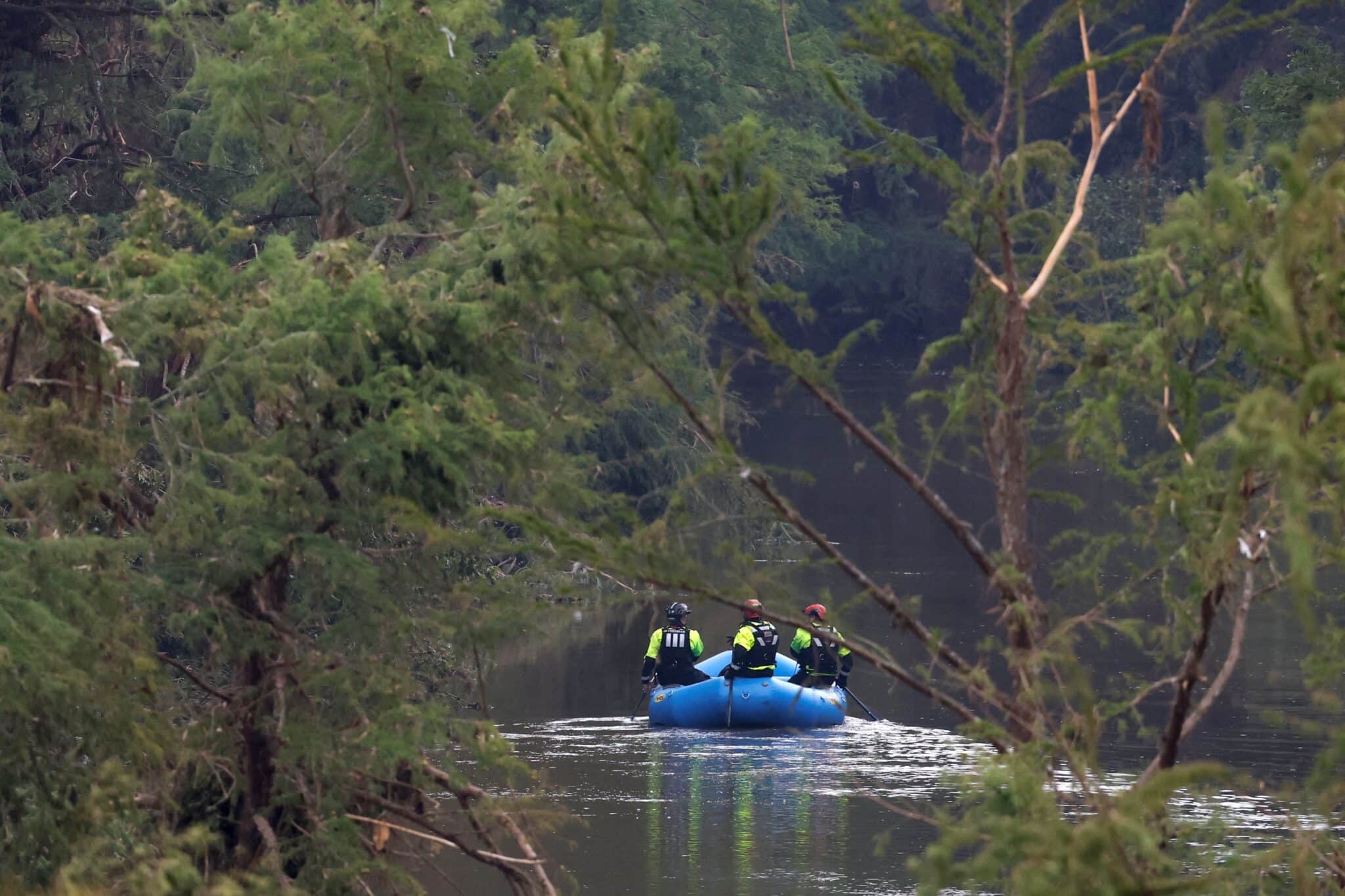

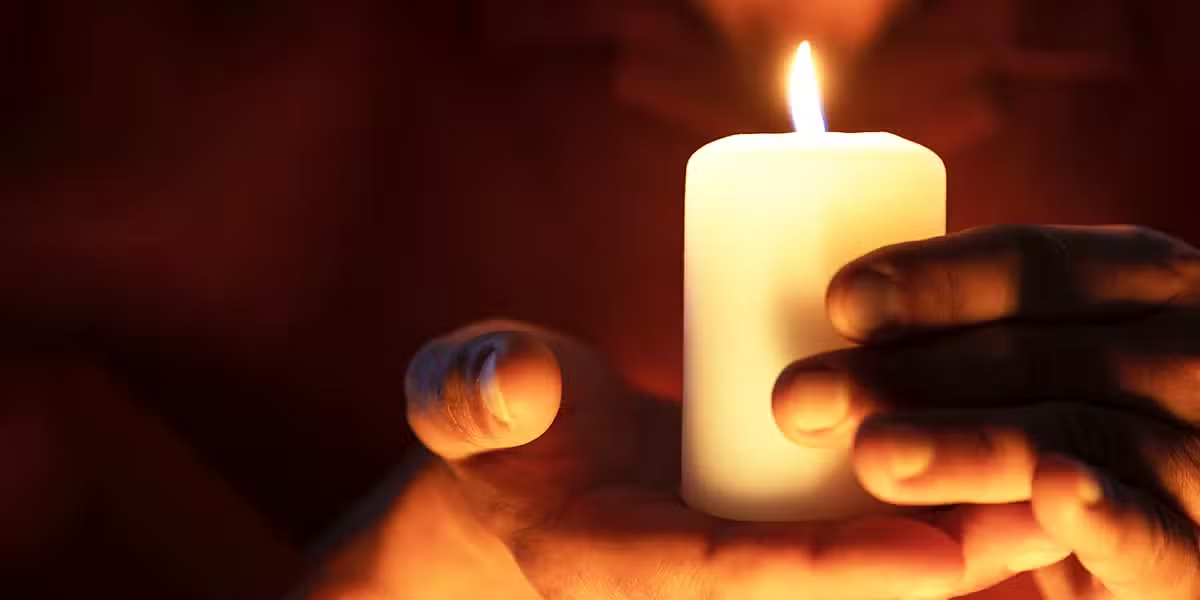
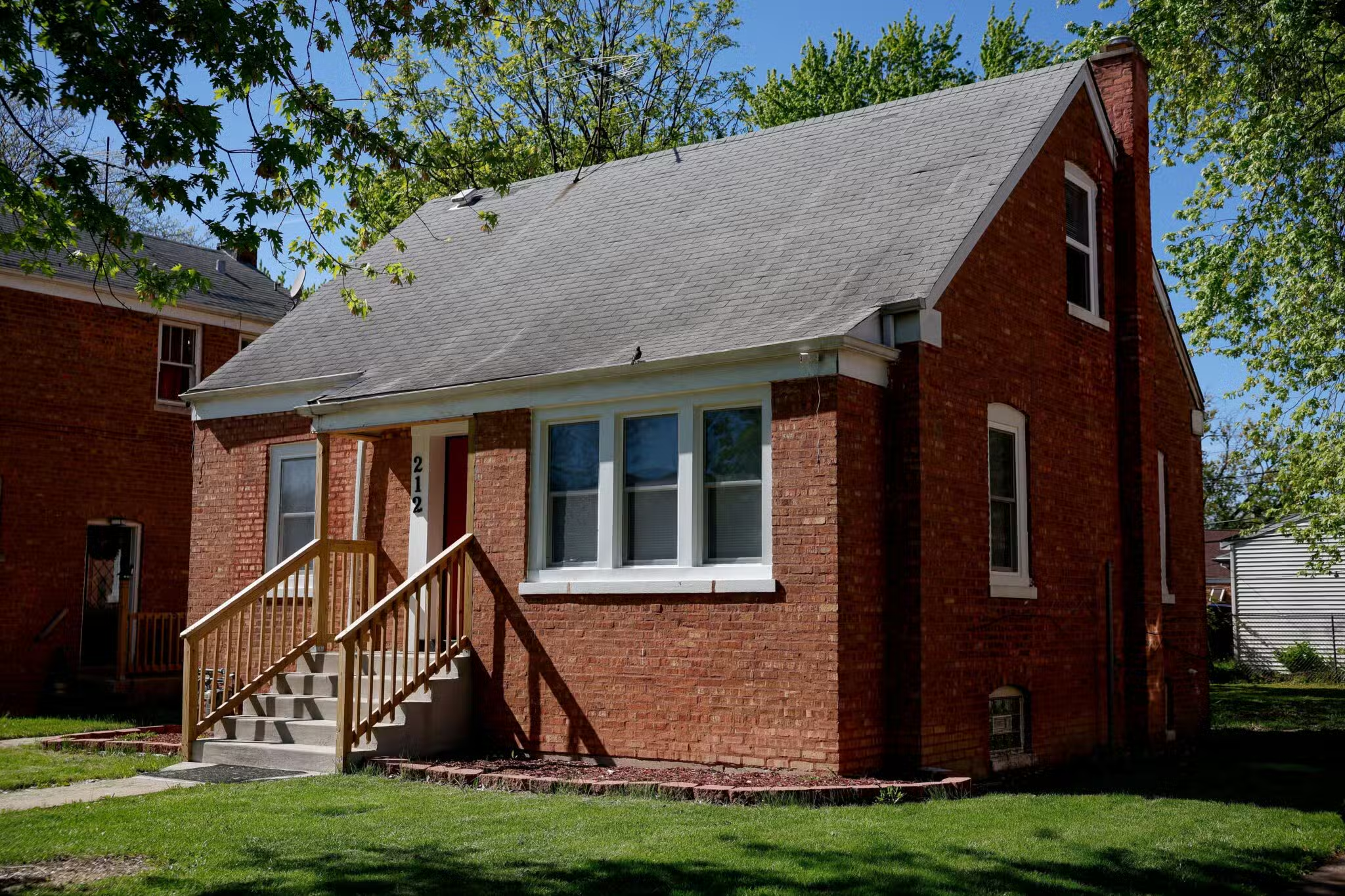

5 thoughts on “Brother Marinus: War Hero and Selfless Monk”
I love this story so much
As a young teenager I used to hunt the fields and woods over at St Paul’s Abbey. I would always go in the gift shop for lunch. Br Marinus was always there and we had many nice conversations. A truly humble and inspiring man of God. ( he used to give me a frozen Charleston Chew as a treat)
You actually met Brother Marinus? That is so cool!!!!
My son read the book titled ‘Ship of Miracles’ about him and made it a main theme about his annual social study school project. We are from Korea and will remember Korean War veterans’ sacrifice. Freedom is not free.
Brother Amari was born and raised in Philadelphia in the Frankford neighborhood. He and my father were almost exactly the same age and lived a few blocks apart. Brother lived on the same block as the local public school and I suspect that he and my father were in the same class and certainly would have been acquainted if not friends. His story inspires anyone to see that an ordinary neighborhood boy from Philadelphia could rise to be a saint.